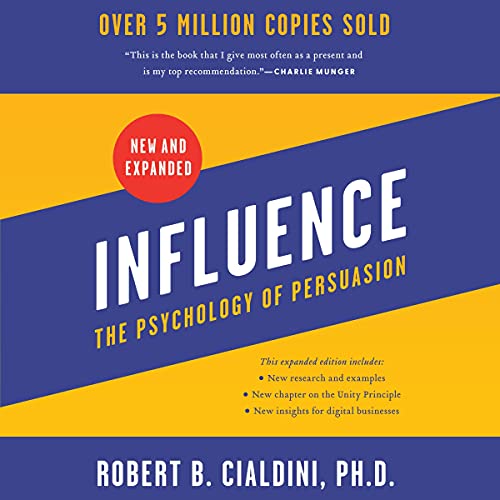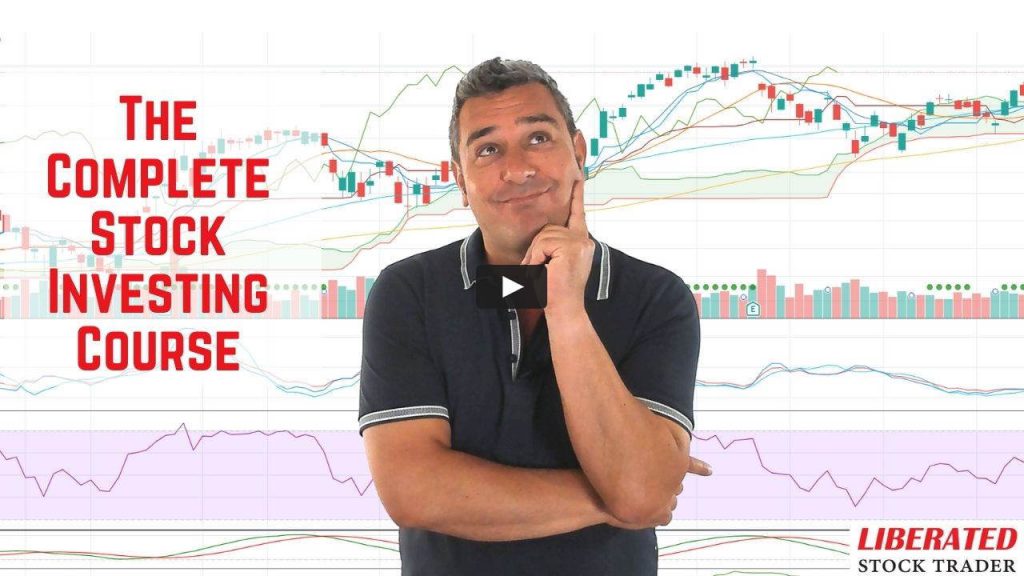Charlie Munger passed away in 2023, but the legend of his investing prowess and life story will live on forever. He was Warren Buffett’s business partner and close friend, and together, they built Berkshire Hathaway into a multi-billion dollar company.
Munger was known for his sharp wit, keen mind, and ability to distill complex concepts into simple principles. He believed in constantly learning and expanding knowledge across various disciplines, not just investing.
One way he achieved this was through reading. Munger famously said, “In my whole life, I have known no wise people who didn’t read all the time – none.” And he put that belief into practice by recommending books to others throughout his life.
Charlie Munger’s most recommended books are Deep Simplicity, Fiasco, Influence, Living Within Limits, Getting to Yes, and The Greatest Trade Ever.
His most recommended books cover a wide range of topics, from psychology and decision-making to history and economics. These books helped shape Munger’s thinking and contributed to it.

Many observers think Munger’s investing prowess rivaled Buffett’s. Munger developed his investing system based on an intense study of economics, psychology, history, and other subjects.
Charlie Munger Book Recommendations
- Deep Simplicity
- Fiasco
- Influence
- Living Within Limits
- The Warren Buffett Portfolio
- Getting to Yes
- In The Plex
- The Greatest Trade Ever
- Judgment in Managerial Decision Making
- Only the Paranoid Survive
Charlie Munger’s 12 Favorite Books
1. Deep Simplicity
Bringing Order to Chaos and Complexity by John Gribbin
Astrophysicist Gribbin argues that chaos and complexity are the natural states of the universe. Gribbin believes chaos and complexity govern all processes, including the weather, evolution, and space.

A logical extension of Gribbin’s ideas is the belief that chaos and complexity govern the markets. Thus, understanding chaos and complexity can show you how the markets work. Munger believed markets are complex and chaotic, rejecting simplistic notions such as the “efficient market theory.”
Understanding that the market’s natural state is chaos can help you make money. Munger protected his money by investing in stocks with a high margin of safety.
2. Fiasco
The Inside Story of a Wall Street Trader By Frank Partnoy
Munger recommended derivative trader Partnoy’s expose of some of the world’s top investment firms.

Fiasco, written in 1999, was one of the first books to warn of the danger of derivatives. Partnoy issued his warning eight years before mortgage-based derivatives caused the financial crisis of 2007-2008.
Munger admired Fiasco because it exposed the insanity and stupidity of the market and traders. Munger believed the markets were insane and invested accordingly.
3. Influence
The Psychology of Persuasion by Dr. Robert B. Cialdini
Cialdini, a professor of psychology, marketing, and business, is one of the top experts in the science of influence. In Influence, Cialdini lists six universal principles of influence that can make anybody a skilled persuader.

Cialdini’s principles are based on 35 years of evidence-based, peer-reviewed scientific research. Munger thought Cialdini’s principles guided investors’ behavior.
Influence can help investors by exposing the behaviors that guide market behavior. Anybody wanting to know why people buy stocks, services, and products must examine Influence.
4. Living Within Limits
by Garrett Hardin
While Cialdini focuses on the power of persuasion, Garrett Hardin’s Living Within Limits seeks to understand human behavior by examining it through a wider lens.
Hardin examines how population growth, resource depletion, pollution, and other factors impact the global economy and investment strategies and presents data-driven solutions for long-term sustainability.

Hardin is a prominent biologist and ecological philosopher who argues that present-day human civilization is unsustainable. Hardin argues that humanity will exhaust the Earth’s resources if they do not change their behavior.
Munger, Hardin, Buffett, and Cialdini believe scarcity drives human and market behavior. Accepting the reality of scarcity can help you make money by identifying scarce resources that could increase in value.
5. The Warren Buffett Portfolio
Mastering the Power of the Focus Investment Strategy by Robert G. Hagstrom
Hagstrom outlines Warren Buffett’s investment strategies and how to apply them in this book. He explains why focusing on a few stocks or businesses is one of the best ways to make an income from investing in the stock market.
The book offers examples of successful investments by Mr. Buffett that show how he used his strategy to beat the market average returns and become one of the world’s wealthiest investors. The book also offers advice on selecting stocks and developing your investment strategy. It overviews the four main steps for successful investing: research, analysis, execution, and monitoring.

Munger recommended this examination of Buffett’s investing strategies and philosophy. Hagstrom shows how Buffett picks stocks and makes investments.
Hagstrom’s major insight is that Buffett succeeds by investing in safe and profitable stocks. Identifying the traits of what Buffett considers a safe and profitable stock could help you make money.
Hagstrom explains what he calls focus investing in simple terms any investor can adopt. The Warren Buffett Portfolio best explains Buffett’s strategy for ordinary people.
6. Getting to Yes
Negotiating Agreement Without Giving In by Roger Fisher and William L. Ury
This classic negotiation book is a must-read for anyone looking to hone their negotiating skills. It provides an easy-to-follow framework for understanding and engaging in successful negotiations without making concessions or sacrificing your principles.
The authors advise finding creative solutions, handling difficult people, and navigating sticky situations.

Getting to Yes offers a proven, step-by-step strategy for reaching mutually acceptable agreements and ending conflicts. Ury and Fisher base their work on research from the Harvard Negotiation Project.
Munger recommended Getting to Yes because it offers a practical agreement and conflict resolution strategy. Many observers consider Getting to Yes one of the primary business texts of the modern era.
Reading Getting to Yes can help you understand the thinking of business leaders. Knowing how executives make compromises and deals can help you understand mergers and other stock market changes.
7. In The Plex
How Google Thinks, Works, and Shapes Our Lives by Stephen Levy
The Plex chronicles the rise of Google from its origins to its current and future impact on the lives of all individuals. Levy provides an in-depth look at what makes Google tick, including how it operates as a company, its innovative algorithms, and its world-changing innovations.

Alphabet (NASDAQ: GOOG) founders Sergey Brin and Larry Page gave Levy full cooperation in his study of Google.
Levy explains that the secret of Google’s success was Brin and Page’s laser-like focus on engineering. Brin and Page made Google into a money machine by focusing on speed, experimentation, openness, and risk-taking.
Munger admired In The Plex because it exposes the philosophy behind one of the world’s most profitable companies. Learning how Alphabet (NASDAQ: GOOGL) succeeds can help investors identify new technologies and companies that could leverage those technologies.
8. The Greatest Trade Ever
The Behind-the-Scenes Story of How John Paulson Defied Wall Street and Made Financial History by Gregory Zuckerman
This book tells the story of hedge fund manager John Paulson’s successful bet against the housing market ahead of the financial crisis. It reveals how Paulson and his colleagues profited from their analysis of subprime mortgages and collateralized debt obligations.

John Paulson realized that the subprime mortgage market was about to melt down. Zuckerman shows how Paulson and other renegade investors made fortunes by betting on mortgage-backed derivatives.
The Greatest Trade Ever tells how Paulson made $15 billion by sticking with his strategy and trusting in the market’s insanity and traders’ stupidity. Munger admired The Greatest Trade Ever because it verified his opinions of the markets.
Paulson made money because he believed Mr. Market was insane. Munger and his friend Buffett also believed in Mr. Market’s insanity. The Greatest Trade Ever shows that Betting on Mr. Market’s insanity can be a good way to make money.
9. Judgment in Managerial Decision Making
by Max H. Bazerman and Don A. Moore
Judgment in Managerial Decision Making provides sound advice and real-world examples of decision-making scenarios. The authors discuss different strategies to increase your chances of success in decision-making, such as using simulation analysis and randomly testing outcomes. In addition, the authors guide individual biases that can lead to poor decisions.

Munger was fascinated by behavioral decision research and the insights it provides into managers’ behavior. In this textbook, Bazerman and Moore examine the judgments behind negotiation and investment decisions.
The two authors show how cognitive biases shape decisions. Munger believed behavior decision research can help investors by showing how traders and managers make decisions.
10. Only the Paranoid Survive
How to Exploit the Crisis Points That Challenge Every Company by Andrew S. Grove
This book by Intel’s former CEO and chairman, Andrew S. Grove, is about surviving in the high-tech business world. Grove believes that success depends on vigilance for pivotal moments when a company must change direction or risk collapse.
The book provides examples of companies that have failed to recognize when they needed to pivot, along with strategies to help make better decisions.

Grove believes that leaders need to look for Strategic Inflection Points. A Strategic Inflection Point is a surprise paradigm shift that disrupts a market, industry, or business.
Grove thinks Strategic Inflection Points can be an opportunity to expand a business and make more money. Companies that can survive Them can emerge stronger and more profitable.
Munger thought investors could make money by identifying Strategic Inflection Points and the companies that could profit from them. A company that can make money by supplying an emerging industry, for example
Berkshire Hathaway has made money from Strategic Inflection Points. For instance, Berkshire purchased the Burlington Northern Santa Fe railroad during the 2007 through 2008 financial crisis.
11. Seeking Wisdom
From Darwin to Munger by Peter Bevelin
This book is a must-read for investors and businesspeople. Bevelin examines the strategies, methods, and lessons of some of the world’s greatest thinkers, including Charles Darwin, Warren Buffett, Benjamin Franklin, and Charlie Munger.

Bevelin went in search of wisdom and history and today’s world. One of the wise people Bevelin sought out was Charlie Munger. Another was Warren Buffett.
Bevelin believes Munger was a philosopher with incredible clarity of thought and insight into many areas of life. By examining and distilling Munger’s philosophy, Bevelin shows investors the basis of Munger’s strategy.
Seeking Wisdom is one of the best descriptions of Munger’s thinking and values.
12. The Wealth and Poverty of Nations
Why Some Are So Rich and Some So Poor by David S. Landes
David S. Landes’s award-winning book discusses the influence of geography, culture, and economics on the fortunes of nations. He examines several countries’ histories and concludes their successes and failures. Landes uniquely combines economic history with vivid storytelling to bring complex concepts to life for readers.


Landes examines the roots of economic success, wealth, and poverty in different countries. Those seeking new markets and investment opportunities can use Landes’ work as a guidebook.
One of Munger’s key investing strategies was to examine economies as a whole rather than just looking at investments. Thus, Munger could spot opportunities and profitable investments that market-focused investors will not see.
Understanding the economy as a whole was one of Munger and Buffett’s investing strategies. Books such as The Wealth and Poverty of Nations can teach you how the economy works and show what motivates consumers and investors.
Book Summary
Munger’s reading list shows that successful value investors read about far more than stocks. He read history books, autobiographies, psychology books, economics texts, and business textbooks. By reading widely, he allows himself to see the big picture of the economy and the markets.
Munger’s success showed that a good reading list that contains a wide variety of books could help investors make money. Reading widely is one of the key habits of a successful value investor.
Successful value investors see the whole market and understand the big picture because they are open to new ideas and knowledge. Unsuccessful investors lose money because they cannot see the big picture or understand the markets.
Charlie Munger was a successful investor because he grasped the big picture and understood how the market worked. Examining Munger’s reading list can help value investors survive and make money in the markets.
You want to be a successful stock investor but don’t know where to start.
Learning stock market investing on your own can be overwhelming. There’s so much information out there, and it’s hard to know what’s true and what’s not.
Liberated Stock Trader Pro Investing Course
Our pro investing classes are the perfect way to learn stock investing. You will learn everything you need to know about financial analysis, charts, stock screening, and portfolio building so you can start building wealth today.
★ 16 Hours of Video Lessons + eBook ★
★ Complete Financial Analysis Lessons ★
★ 6 Proven Investing Strategies ★
★ Professional Grade Stock Chart Analysis Classes ★
Source: The Warren Buffett Archive at CNBC

